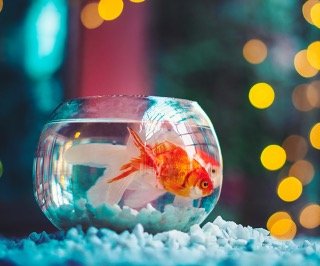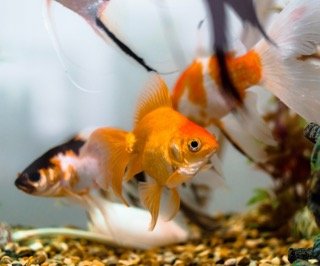
Introduction
One of the most well-liked fish is the betta fish, and it is simple to understand why. They are stunning fish that come in a wide variety of unusual hues and patterns. However, a lot of individuals buy betta fish because they are attractive without completely knowing the maintenance requirements. Here are the things you need to know about caring for betta fish in case you’ve thought of bringing one of those dejected betta fish home from the pet store.
Betta fish make good pets, right?
Betta fish are wonderful pets when given the proper care. Since betta fish are diurnal, or awake throughout the day, you are very likely to see them going about their regular business. Additionally, it gives you two the chance to develop a trustworthy friendship. Your betta will know you and other people who engage with it frequently based on sight and even speech tones. Your betta may start attentively observing you as you go about your daily activities if it sees or hears someone it has grown to trust. In order to have a better view of what you’re doing, it might sometimes move around the tank.
You may also like to read Why Don’t Goldfish Live Longer?
What Stores Sell Betta Fish?
Betta fish are among the most accessible fish because they can be found in virtually all big-box pet stores as well as several small, neighborhood shops. Betta fish are typically found in tiny, individual cups on a display in a pet shop. However, some people interpret this to suggest that bettas can be kept in small tanks with no filtration, which is not the best habitat for them. They are sold this way to keep them isolated from other bettas to prevent fighting. Although some stores carry specialty betta kinds, you are more likely to find them via internet retailers and breeders.
What Is the Price of Owning a Betta Fish?
When compared to other fish breeds, owning a betta fish is relatively inexpensive. Bettas typically stay small, so they only need a tank that is 5 gallons in size, yet they thrive in larger tanks. You won’t need to change the tank over the course of your betta fish’s lives if you start them off in a 5-gallon aquarium since they won’t outgrow it. A low-powered filter or a sponge filter can be used to produce enough filtration and gentle water flow in the tank you purchase for your betta. You can spend as little as $20 on a betta tank with filtration.
What Sort of Housing Is Needed for My Betta Fish?
Tank/Aquarium
Bettas require a tank that is at least 5 gallons in size. They have lots of room to swim and explore as a result. To lessen the likelihood of hostility from your betta toward other fish in the tank, the tank should be bigger than 5 gallons if you plan to keep it in a community setting.
Lighting
Your betta merely needs a day/night light cycle and won’t need any elaborate lighting. This will lessen tension and support the wellbeing of your betta. For your betta fish, low to moderate lighting will be sufficient.
Heat
Tropical fish called Heat Bettas need warm water to survive. There are many different kinds of tank warmers, and the most of them are suitable for bettas. Ideal tank temperature for bettas is between 75 and 80 degrees. Although they can take 68–70°F water, this is not the best choice for your betta.
Tank Additions
Any tank decorations should be smooth to prevent your betta from catching its fins on them, which could cause tears and other harm. Because bettas naturally float, floating logs and floating leaves are excellent additions to a betta tank because they give your betta a place to unwind and relax.
What Do I Give My Betta Fish?
Since betta fish are obligate carnivores, animal protein should make up the majority of their diet. This implies that it is probably not a good idea to feed your betta things like goldfish food and tropical fish food to keep it healthy. The best option for feeding your betta a balanced diet is to buy foods designed specifically for them. Feeding options include flakes or pellets, however pellets are typically more nutrient-dense.
The foundation of your betta’s diet should be pellets or flakes, but there should also be some diversity. Daphnia, brine shrimp, or thawed frozen bloodworms are all suitable treats for your betta.
Conclusion
A betta fish can be entertaining and pleasant to own, and with the right care, they can live many years with you. Betta fish are low-maintenance and simple to care for, which makes them excellent for beginners. It’s crucial to keep in mind that bettas are living creatures and should receive proper care, therefore before you bring one home, you should do some study and get to know their requirements. Your betta and you will probably become close friends if you take good care of it.




